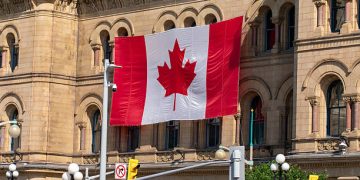Supply Chain News Report – 10/06/2025
Canadian Trade Minister Dominic LeBlanc stated on Thursday that discussions with the United States over tariffs are still active and moving forward, despite missed deadlines and increasing strain in bilateral trade relations. LeBlanc’s remarks came during his testimony before the Senate’s foreign affairs and international trade committee, where he provided an update on the state of negotiations.
The minister stressed that Canada’s goal is to reach a resolution on tariffs independently of the upcoming 2026 review of the Canada-U.S.-Mexico Agreement (CUSMA). According to LeBlanc, separating tariff talks from the larger CUSMA review is critical in order to avoid prolonging disputes that continue to impact industries in both countries.
“I’m not seeing a dead end in those conversations,” LeBlanc said. He emphasized that Canadian officials remain in regular contact with their U.S. counterparts and that discussions are ongoing, even if progress has been slow.
LeBlanc highlighted the significant economic effects tariffs have already created on both sides of the border. Canadian producers continue to face barriers to exporting goods, while American businesses, especially in manufacturing, are struggling with higher costs for essential Canadian inputs. He pointed out that companies such as Ford Motors rely heavily on Canadian aluminum for vehicle production, particularly for its best-selling F-150 trucks. Quebec alone accounted for 65 percent of U.S. aluminum imports in 2024, based on figures from the Aluminum Association of Canada.
While several U.S. trade partners, including the European Union and the United Kingdom, have accepted across-the-board tariffs as part of their agreements with Washington, LeBlanc insisted that Canada will not follow this path. “Any deal with a baseline tariff would not be acceptable,” he said, noting that Canada remains committed to achieving an arrangement that is fair, balanced, and less burdensome for industries in both countries.
The U.S. administration has recently expanded Section 232 tariffs, adding levies on Canadian steel, aluminum, lumber, cabinets, furniture, and other wood products. These new measures compound existing countervailing and anti-dumping duties, which have already heightened financial pressure on both producers and importers. The lumber sector in particular has been hit hard, with added tariffs making Canadian timber less competitive in U.S. markets.
Despite these setbacks, LeBlanc expressed cautious optimism. He argued that domestic pressure within the United States from senators, governors, business leaders and labor unions may help create opportunities for constructive outcomes. “The vast majority of these issues are resolvable or can be significantly improved,” he said, while acknowledging that the road to a final agreement may still be difficult.
Agricultural trade also remains a sensitive point. LeBlanc reaffirmed Canada’s commitment to its system of supply management, particularly in the dairy sector, even as U.S. officials have called for expanded access to Canadian markets. Reports have suggested that Canada may be exploring changes in quota allocation to allow more U.S. dairy into its market, but LeBlanc dismissed suggestions that the system itself would be up for negotiation.
Looking at the broader trade relationship, LeBlanc underscored that CUSMA continues to provide Canada with significant tariff-free access to the U.S. market, which he described as a “massive advantage” for Canadian exporters. Still, he cautioned that while CUSMA is valuable, restoring free trade without punitive tariffs remains the ultimate goal.
U.S. officials, for their part, have expressed frustration at what they perceive as Canada’s lack of flexibility in removing trade barriers. A White House source said recently that little progress has been made in tariff negotiations, adding that Canada’s approach has slowed discussions.
Even so, Canadian officials note that Canada remains one of the largest sources of foreign investment in the U.S., and the government plans to highlight this strong economic relationship in the coming weeks. LeBlanc suggested that telling Canada’s “good story” about cross-border investment could help strengthen the case for easing trade tensions.
Meanwhile, opposition politicians in Canada have criticized the government’s performance on trade talks, arguing that missed deadlines and the lack of a firm agreement signal weak progress. Conservative Leader Pierre Poilievre, in particular, has accused Prime Minister Mark Carney’s government of falling short of its commitments, saying Canadians have yet to see results from promises to negotiate wins with Washington.
Despite the political criticism, LeBlanc maintained that the dialogue with the U.S. remains constructive. While not yet conclusive, he described the ongoing conversations as “encouraging” and reiterated his optimism that a fair resolution can be achieved.
#TradeNegotiations #CUSMA #SupplyChainNews #Tariffs #NewsUpdate















